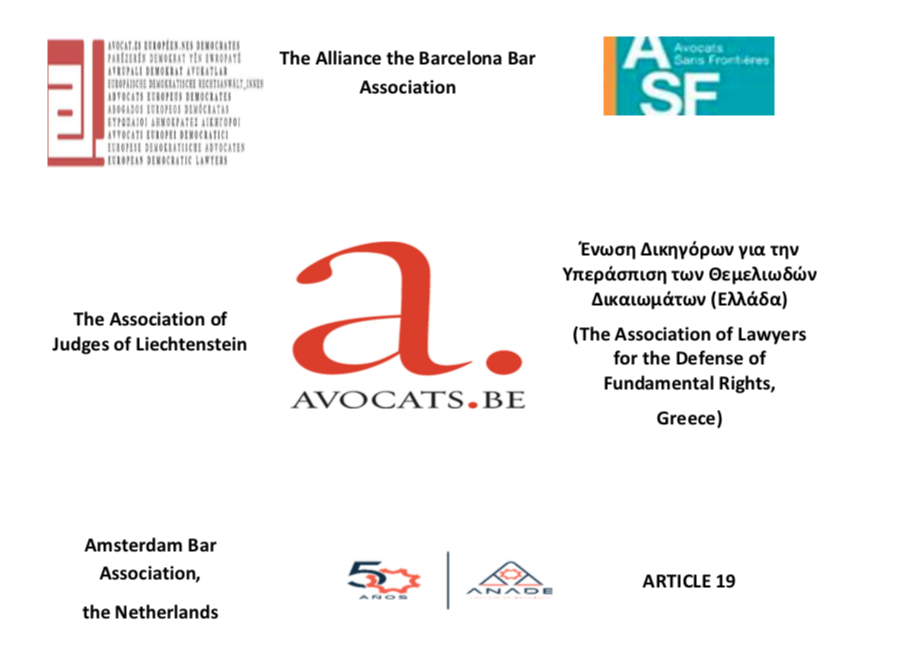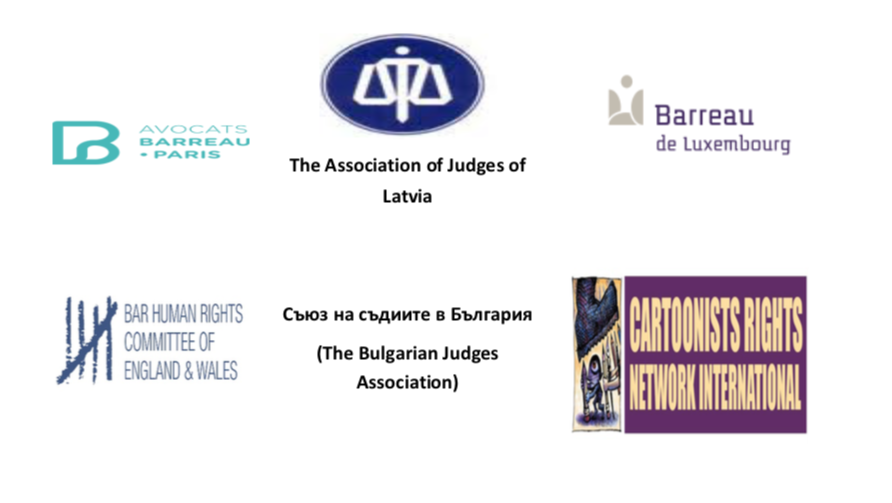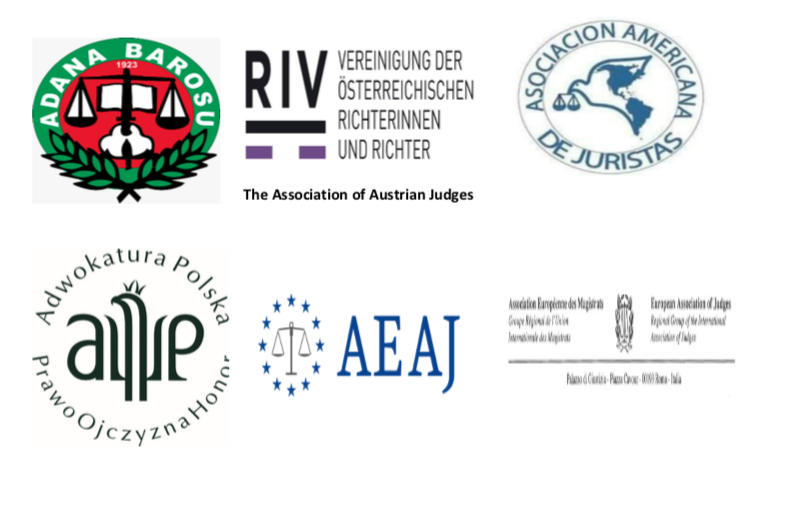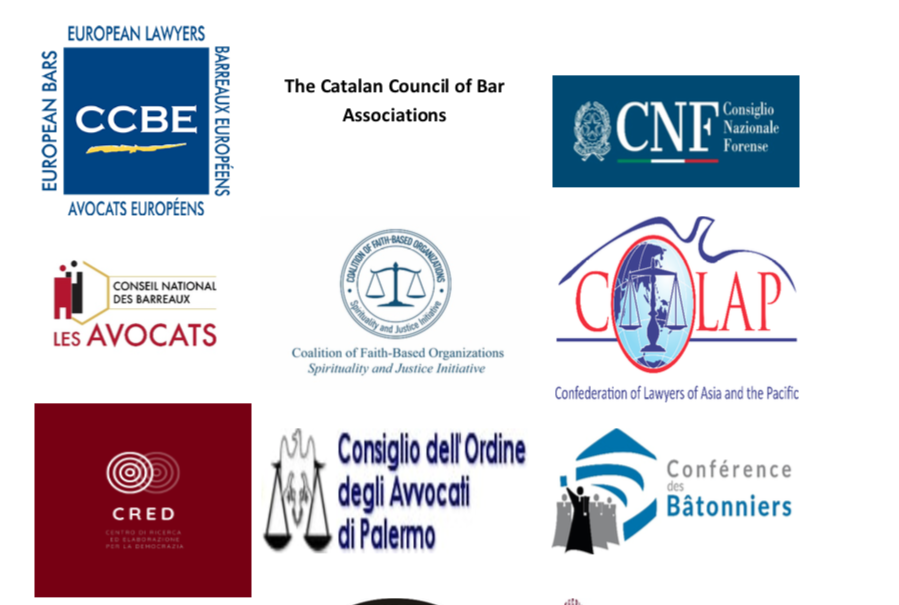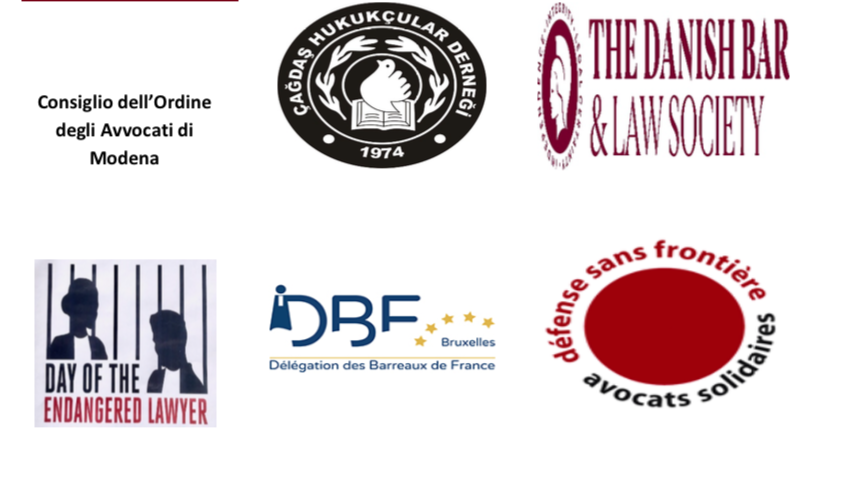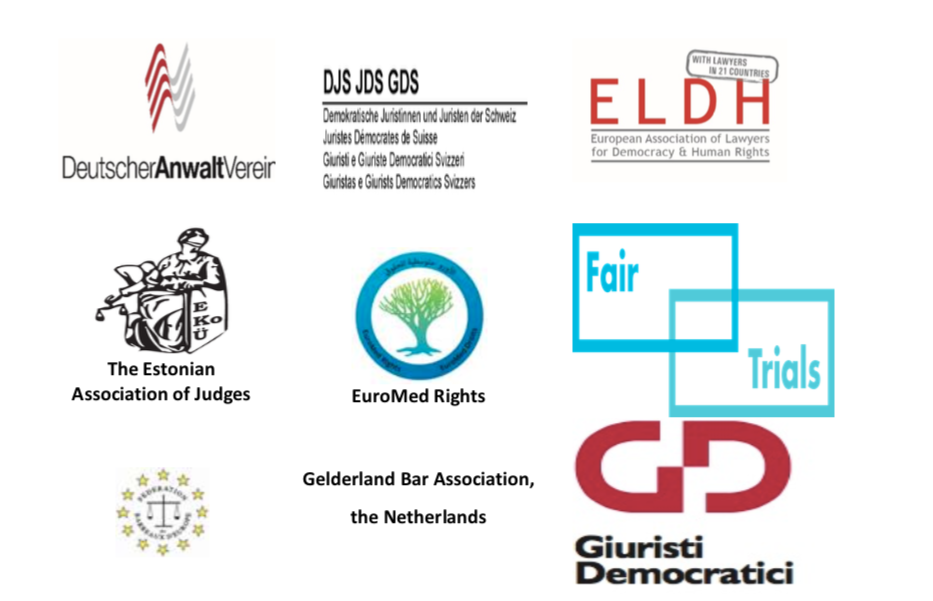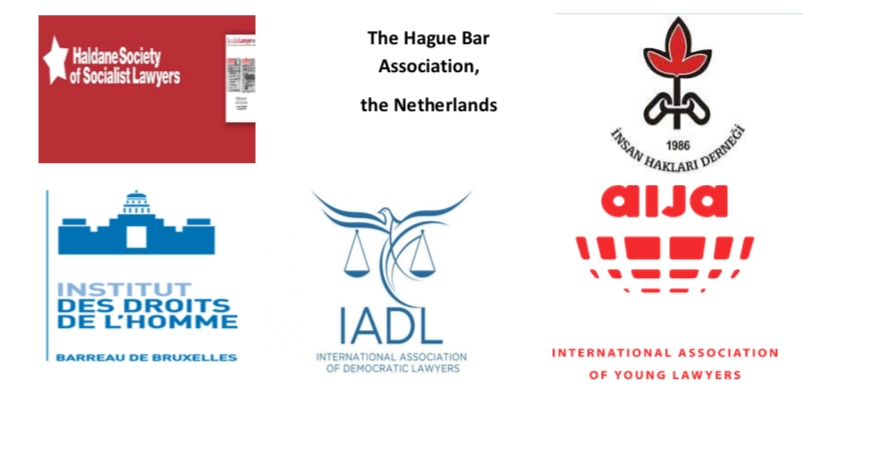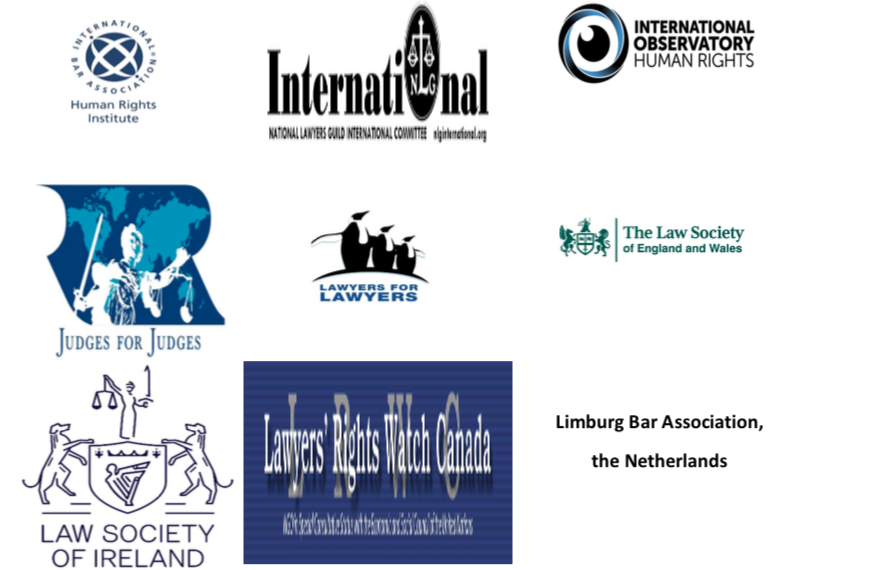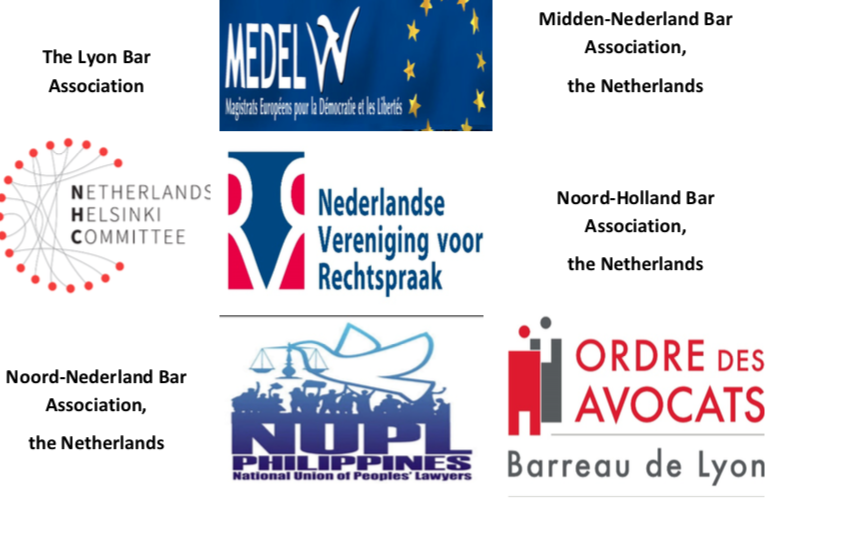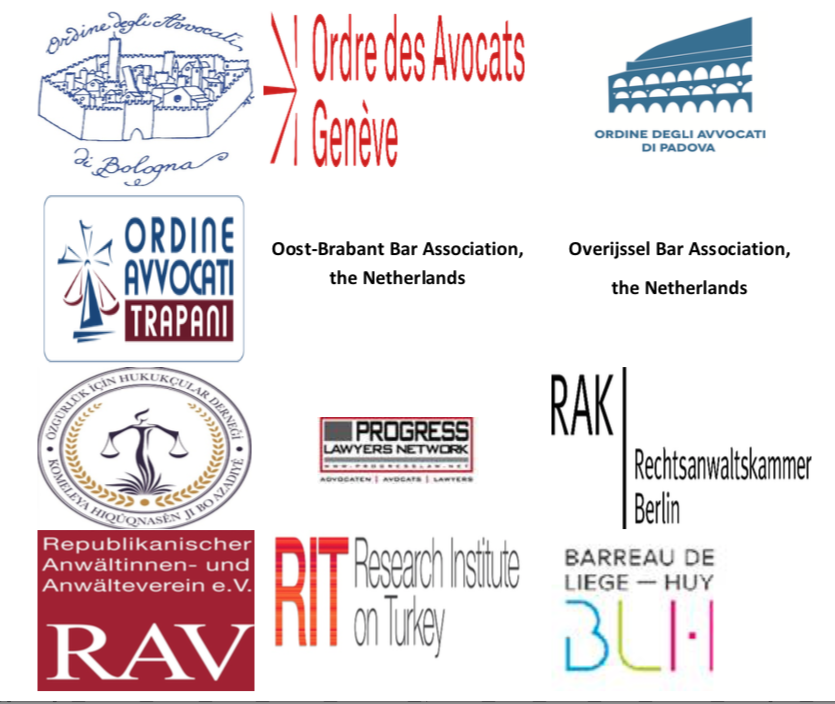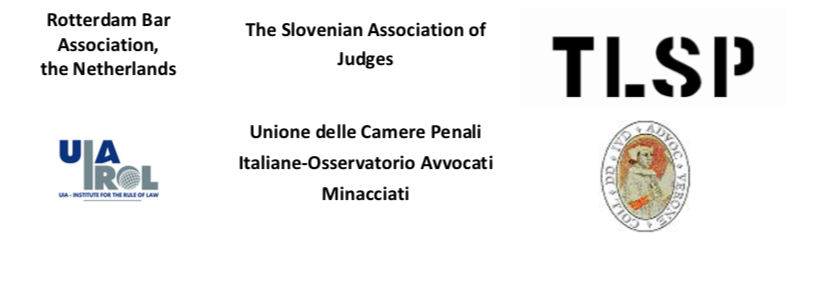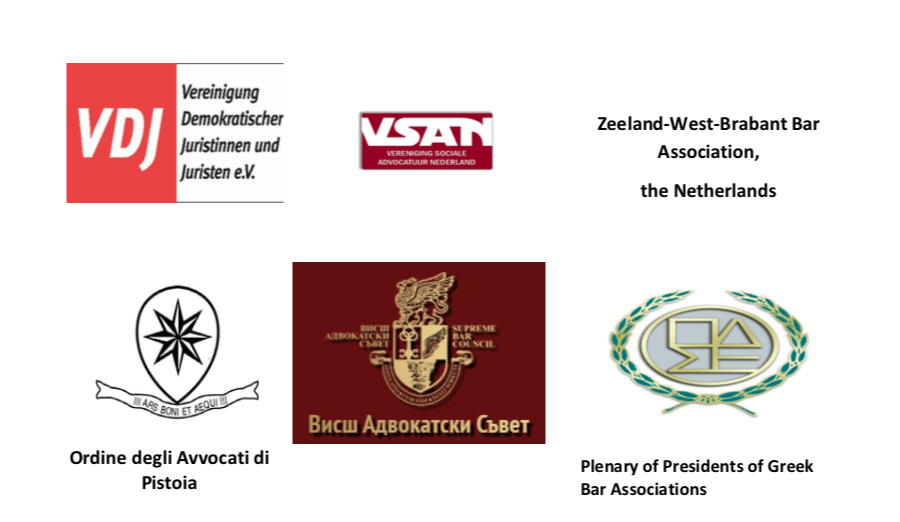Download the statement
Today, 14 June 2021, marks the inaugural International Fair Trial Day (IFTD) which will be observed for the first time worldwide. The focus country of the IFTD this year is Turkey, a country that is and has been suffering for many years, from systemic human rights violations and a serious lack of fair trial standards. On the occasion of the IFTD, drawing attention to the deteriorating situation in the country, the undersigned organisations call upon the Turkish authorities to take the necessary steps urgently to instate the right to a fair trial in Turkey and to create an environment under which these fundamental procedural rights can effectively be protected. The undersigned organisations also call upon the international community to increase their efforts to draw attention to the situation in Turkey with a particular focus on the issues around the fair trial principles.
Background of the IFTD
In response to the serious failure of the judicial system in Turkey to protect and respect fair trial principles, lawyers Ebru Timtik and Aytaç Ünsal began a hunger strike in January 2020. They expressed a common demand of many thousands who were subjected to arbitrary investigations, trials, arrests, detentions, and wrongful convictions. They called on the Turkish government to comply with its obligations to secure and respect the right to a fair trial and to end practices constituting systemic violations of this fundamental right. On 5 April 2020, on Lawyers’ Day in Turkey, they turned their hunger strike into a death fast to underline the vital importance of this demand. Ebru Timtik lost her life on 27 August 2020, the 238th day of her death fast, while Aytaç Ünsal ended his protest on 4 September 2020 following a temporary release order by the Supreme Court which was later withdrawn. He was returned to prison on 10 December 2020.
Fundamental rights and freedoms and principles of the rule of law are under attack not only in Turkey but globally. In many countries, including European countries, there are reports documenting governmental oppression and practices undermining international human rights obligations. Thus, those who carry out activities to condemn, draw attention to and criticise these practices are under constant pressure from the state apparatus, including pressure from the judiciary, whose independence and impartiality is being seriously undermined. Attempts are being made to silence lawyers, human rights defenders, journalists, opposition politicians, academics and many others raising their voices against such policies through baseless
accusations against them, e.g. under anti-terror legislation, a practice that has been referred to as ‘judicial harassment’.
The International Fair Trial Day was established along with the Ebru Timtik Award to advocate for the re-establishment of fair trial rights in those countries where fair trial rights are under serious threat. The occasion will be used by the international community to focus on the situation in the country chosen for that year as the focus country and to draw attention to the fair trial issues faced there. Also, an annual Ebru Timtik Award will be granted to an individual and/or an organisation from the focus country that has been active in defending and or promoting the right to a fair trial in that specific country.
Taking into account the background of the IFTD and the continuing deterioration of the situation in the country, Turkey was chosen this year as the focus country. In future years other countries will be chosen to reflect the challenges to the right to fair trial being experienced in those respective jurisdictions.
Call to Action on Turkey
The state of human rights and rule of law in Turkey have been declining particularly since the Gezi Park protests in 2013 which were followed by the collapse of the peace talks in 2015 and the state of emergency declared after the 15 July 2016 coup attempt which remained in place for 2 years until July 2018. The mistreatment of lawyers, journalists, human rights defenders, opposition politicians, academics, and others who are critical of the current situation reflects a far wider practice in the country of failing to respect fair trial rights, among other fundamental rights and freedoms, especially since the attempted coup of July 2016.
The rapid deterioration seen in human rights has been widely reported and reflected on by the international community, including the UN and Council of Europe organs, each of which has identified serious issues ranging from the lack of independence of the judiciary to the collapse of the main pillars of a democratic system, including separation of powers. Criticisms from these international bodies and from the international community generally have been far ranging from undue interference in fundamental rights and freedoms for political purposes to serious violation of political participation rights of the minority groups such as Kurds.1
Reflecting on the issues identified in these reports, we the undersigned organisations, call on the Turkish authorities to implement the following steps to ensure full protection of the right to a
1 See e.g. the Working Group on the United Nations Universal Periodic Review, adopted on 29 September 2020 at the 45th session of the Human Rights Council of the UN; Committee on the Honouring of Obligations and Commitments by Member States of the Council of Europe (Monitoring Committee), the functioning of democratic institutions in Turkey, Report | Doc. 15272 | 21 April 2021, https://assembly.coe.int/nw/xml/XRef/Xref- XML2HTML-en.asp?fileid=29155&lang=en ; World Justice Project, Rule of Law Index 2020, https://worldjusticeproject.org/our-work/research-and-data/wjp-rule-law-index-2020
fair trial in the country and to create an environment enabling effective protection of its underlying principles:
- take necessary legislative and other measures to ensure the independence and impartiality of the judiciary and end all practices constituting direct interference, pressure or influence with respect to judicial conduct, including those from the executive;
- implement the recommendation of the numerous human rights oversight mechanisms, including of the Human Rights Council in the UN Universal Periodic Review2 and Venice Commission,3 to introduce a constitutional amendment to make the Council of Judges and Prosecutors independent of the executive and ensure that its decisions are open to judicial review;
- amend the relevant articles of the Turkish Penal Code and the Law No. 3713 on Prevention of Terrorism, that are found to be broad, vague and arbitrarily applied against critical voices, to meet the requirements of clarity and foreseeability and the principles of legal certainty and no punishment without law;
- immediately end the systematic abuse, detention and prosecution of lawyers, judges, other legal professionals, journalists, human rights defenders, opposition politicians, academics and others where there is no cogent evidence of specific criminal misconduct presented in proceedings that comply with international fair trial standards;
- guarantee and respect the principle of presumption of innocence in all criminal investigations and prosecutions;
- stop any practices preventing enjoyment of the rights protected under international human rights treaties such as freedoms of expression, association and peaceful assembly, including by way of using the exercise of such freedoms as grounds for arbitrary prosecutions and lengthy and punitive pretrial detention;
- ensure that the rights to fair trial embodied in article 6 of the European Convention on Human Rights and article 14 of the International Covenant on Civil and Political Rights are respected in all criminal prosecutions in Turkey’s criminal courts at all levels;
-
repeal state of emergency amendments passed into law, which amendments seek to
enable the dismissal of judges and prosecutors without a fair hearing and which seek to
limit the rights of lawyers to discharge their professional duties, the rights of suspects to
legal counsel, and the right of lawyer-client communications, as well as to impose other
2 Ibid.
3 European Commission for Democracy Through Law (Venice Commission), Draft Opinion on dhe Draft Law on Judges and Prosecutors of Turkey, 8 March 2011, opinion no 610/2011, https://www.venice.coe.int/webforms/documents/?pdf=CDL(2011)003-e
limitations on the justice system, as outlined in the report of Human Rights Watch published in April 20194;
- end the practice of mass trials of lawyers, judges, journalists, opposition politicians, human rights defenders and others, in particular on bogus charges, such as the charge of membership in a terrorist organization, aimed at preventing their legitimate activities and silencing them; and
- create an open dialogue with the international oversight mechanisms and national and international NGOs to address and resolve the structural human right issues in the country and, as a first step, promptly agree to requests by the UN Special Rapporteur on Judges and Lawyers and other special procedures to conduct country visits to Turkey. We call on the international community to respond effectively to the deteriorating state of human rights and rule of law in Turkey and to increase its efforts to effectively address these issues with international stakeholders for increased awareness and attention.
